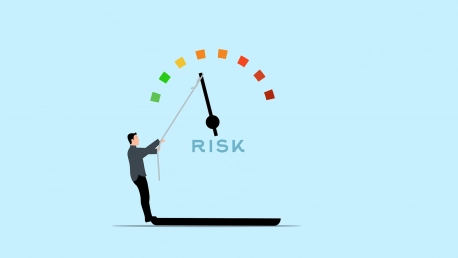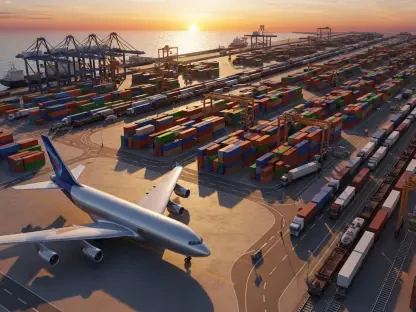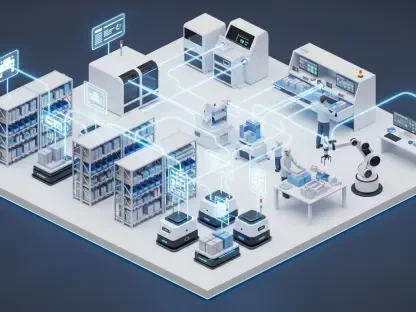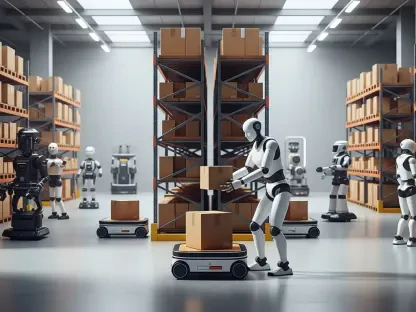The transportation and logistics sector is navigating a treacherous landscape, as highlighted in Aon’s 2023 Global Risk Management Survey. This industry faces a plethora of risks, exemplified by recent global upheavals. Aon’s survey sheds light on these challenges, serving as a vital guide for organizations looking to safeguard their operations. By delving into the survey’s insights, companies can develop strategies to bolster their resilience amidst uncertainties. The key for leaders in this field is to adapt proactively to these identified risks, ensuring a proactive rather than reactive approach to the unpredictable nature of the industry. The knowledge gleaned from the GRMS is a powerful tool, equipping businesses to withstand and thrive through the unpredictable currents of the transportation and logistics ecosystem.
Cybersecurity at the Forefront of Risk Management
The digital revolution has been a double-edged sword for the transportation sector, fostering innovation while also exposing it to cyber vulnerabilities. According to Aon’s 2023 GRMS, cyberattacks and data breaches are top-of-mind concerns for industry professionals. This fear is not unfounded, as a single digital mishap can spawn catastrophic operational interruptions. The need for comprehensive cybersecurity measures is no longer optional but a crucial foundation of modern transportation infrastructure.Creating solid barriers against cyber threats requires collaboration across various disciplines within organizations. A cross-departmental defense strategy entailing the concerted efforts of Human Resources, Risk Management, and Information Technology departments is key to fortifying a digital defense. Equipped with a shared vision, these combined forces can deploy a far more effective shield against the barrages of cyber threats targeting the sector’s increasingly interconnected systems.
Economic Concerns and the Path to Resilience
Amid signs of global economic tumult, the transportation industry braces for potential slowdowns that could hamper its growth. Aon’s 2023 GRMS underscores how such economic instability can have deep ramifications, including funding challenges and reduced consumer spending affecting freight volumes. Yet, industry players can navigate these uncertainties by remaining vigilant and devising strategies that promote organizational agility and financial resilience in the face of potential recessions.Proactive economic preparedness goes hand in hand with prudent reputation management. Sustaining cash reserves and making astute capital expenditure decisions are essential strategies that transport and logistics companies must consider. Moreover, reputation management through strategic communications and engagement on social platforms can establish a brand’s reliability, crucial for retaining consumer trust when economic headwinds threaten to erode market confidence.
The Human Element: Workforce and Talent Strategies
One of the most pressing issues highlighted by the 2023 GRMS is the persistent workforce shortage faced by the transportation industry. The challenges are twofold: attracting new talent and retaining skilled professionals, essential for maintaining high service standards. The sector must rethink work-life balance offerings and shore up its appeal to a workforce that has many options to consider in today’s job market. The risk of service quality degradation looms large in the absence of a competent workforce.With technology advancing at breakneck speeds, workforce development strategies must prioritize aligning skills with new tools like AI and automation. The transportation sector’s viability hinges on its ability to embrace these innovations and upskill its workforce accordingly. Recruitment and retention must not only attract talent but also ensure that existing employees are equipped to meet the industry’s evolving technological needs.
Preparing for the Future Amidst Persistent Challenges
Current discourse in the transportation and logistics sector is often focused on well-established risks, yet there are emergent threats poised to disrupt. Innovative technology and climate change stand to revolutionize logistics operations significantly. The 2023 Global Risk Management Survey (GRMS) notes such issues are gaining attention and necessitate strategic planning. Industry leaders face the challenge of dealing with advanced cargo theft, which leverages new tech applications.As the industry forges ahead, leaders must steer towards modernization while dealing with potential economic contractions, shifting regulations, and limited resources. Embracing strategies like fleet electrification and reducing reliance on fossil fuels are crucial for maintaining resilience against environmental pressures and regulatory mandates. Balancing these upcoming hurdles with emerging opportunities will chart a complex journey for those steering the transportation industry’s future.
Adapting to Change with Comprehensive Risk Planning
While recognizing an array of risks, the industry’s preparedness remains in question, with fewer than half of the survey’s respondents reporting concrete plans to counter threats effectively. Assessing the factors contributing to this gap in readiness, there’s a clear need for comprehensive planning. Focused efforts on continual cyber threat assessment and staff training can significantly elevate an organization’s readiness to confront potential digital dangers.Implementing robust risk management tactics is essential across various industry concerns. The 2023 GRMS points to the importance of comprehensive mitigation strategies spanning cyber risks, economic volatility, and talent management. By investing in preventative measures, companies can better fortify against multiple fronts of risk, ensuring a balanced, resilient approach capable of withstanding the pressures of an unpredictable landscape.









